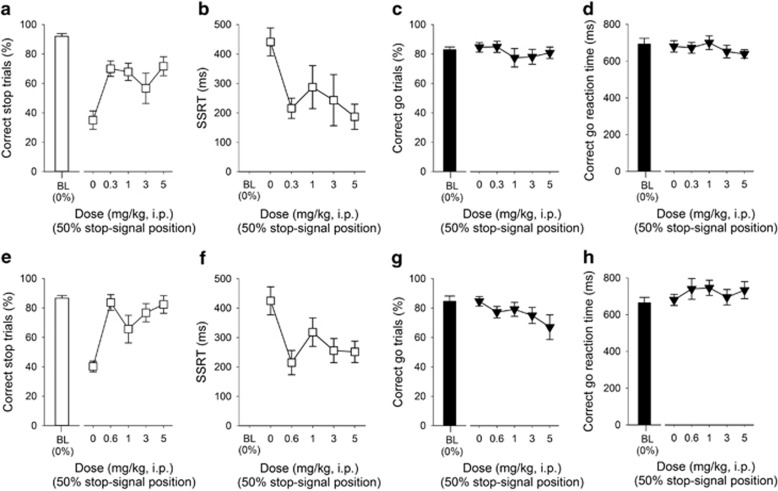Figure 2.
Effects of methylphenidate and atomoxetine administration on stop-signal reaction time task performance in adult MF1 40,XY mice (n=12). At all doses used, methylphenidate improved stopping performance (a) and reduced the SSRT (b), but did not affect the proportion of correct go trials (c) or the latency to make a correct go response (d). Administration of atomoxetine increased successful stopping (e) and decreased the SSRTT (f). The specificity of atomoxetine to affect stopping was shown by a lack of effects on the proportion of correct go trials (g) and speed of the go response (h). Baseline data (BL ie, mean of the five sessions immediately preceding each drug treatment session) when the stop-signal presentation were concurrent with the start of the go response (0%) are shown for illustrative purposes and were not included in the statistical analysis.

